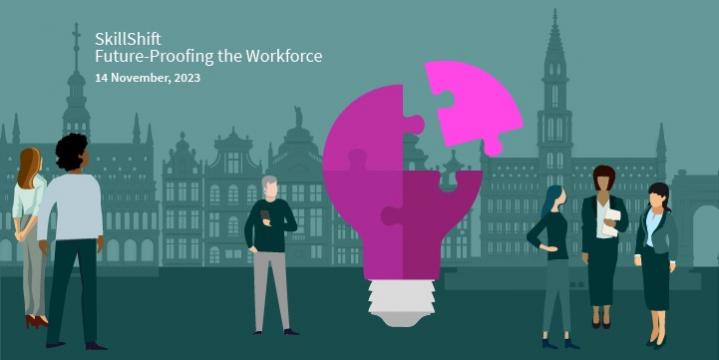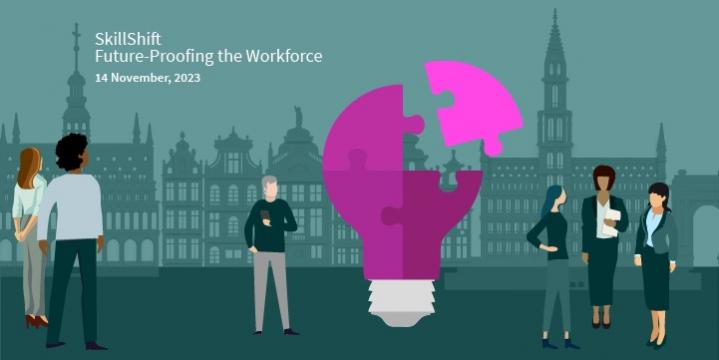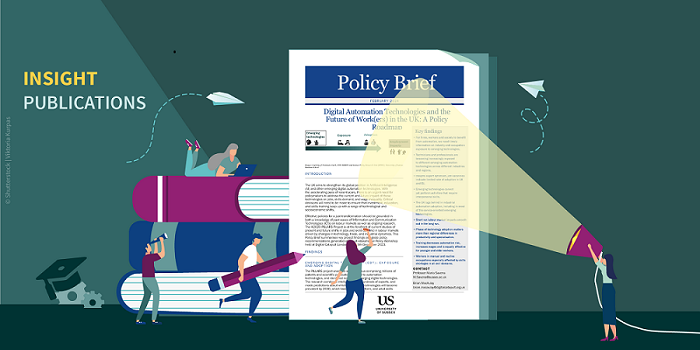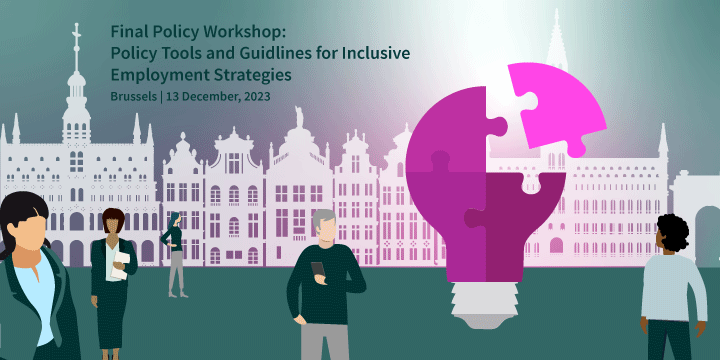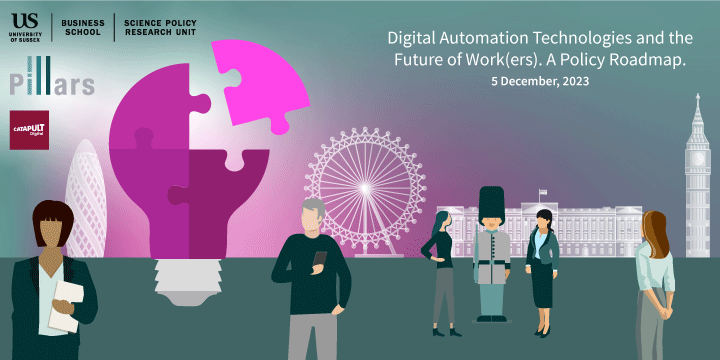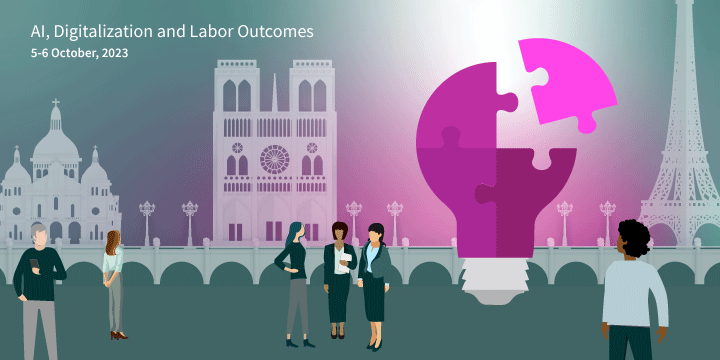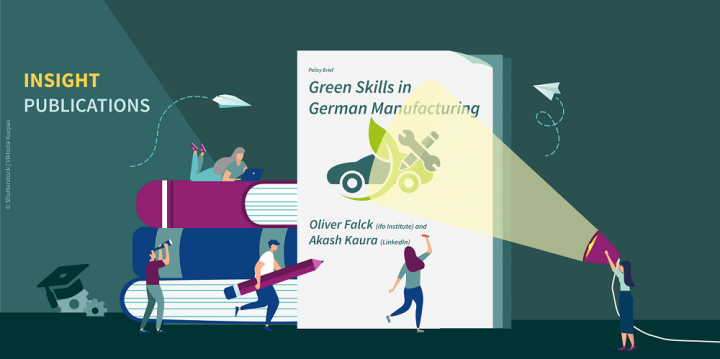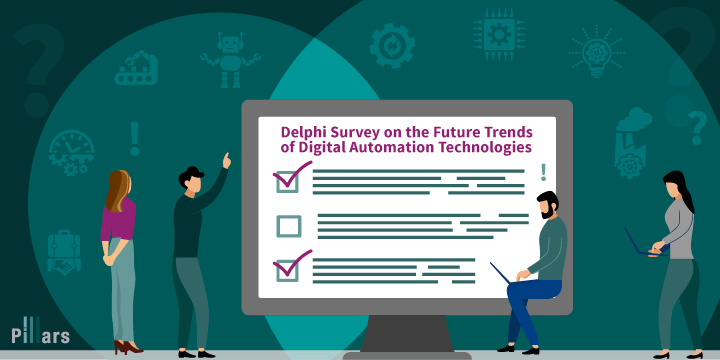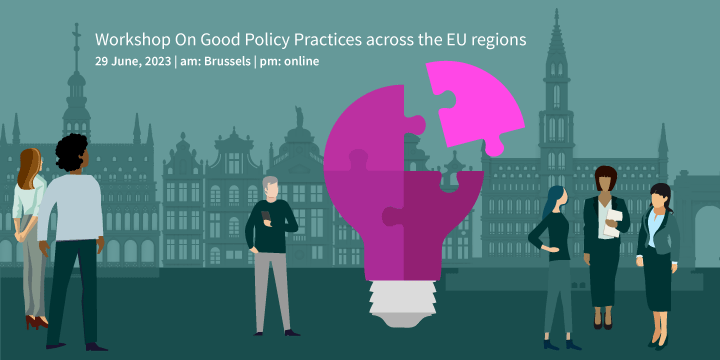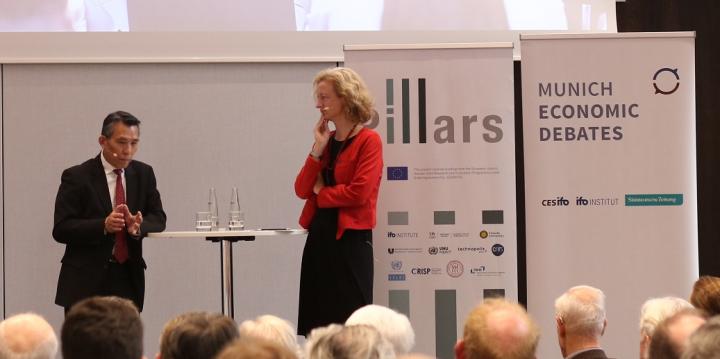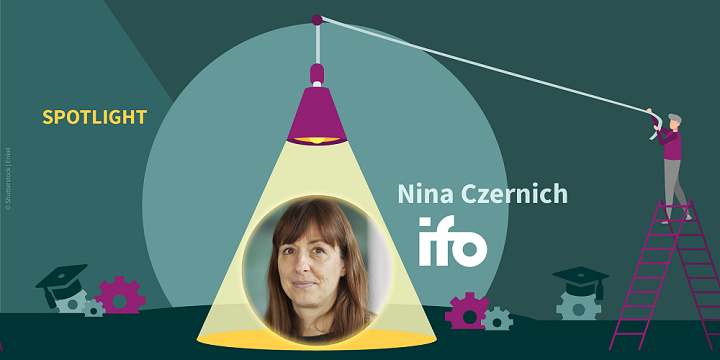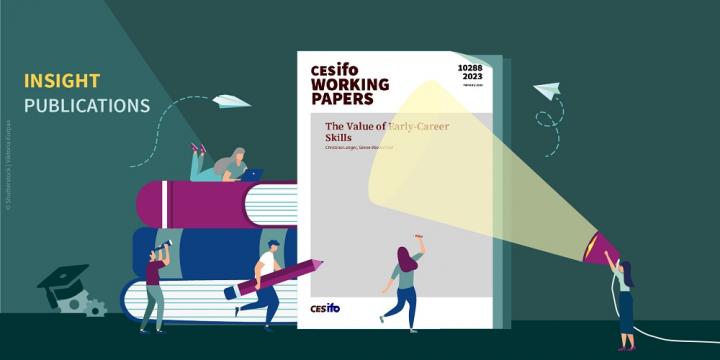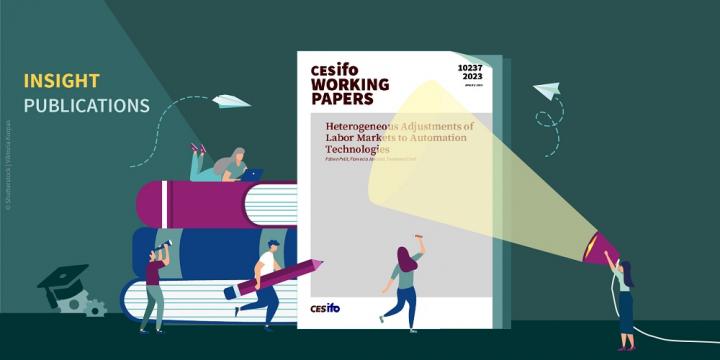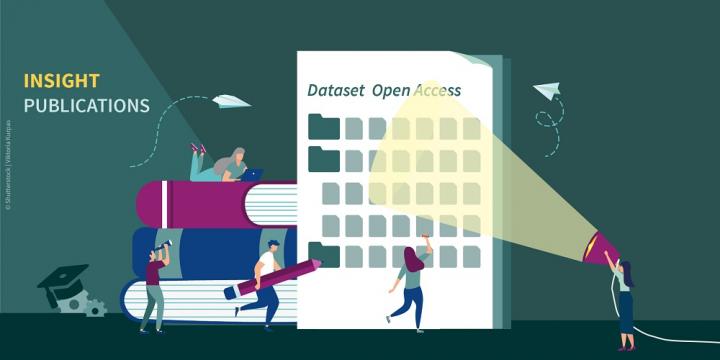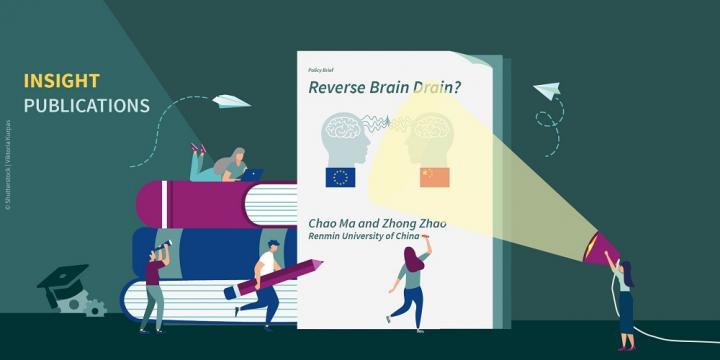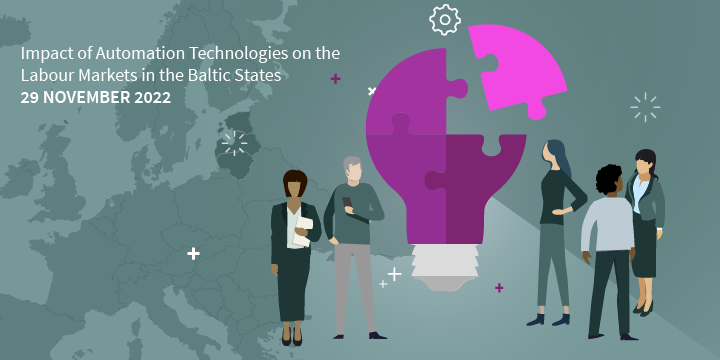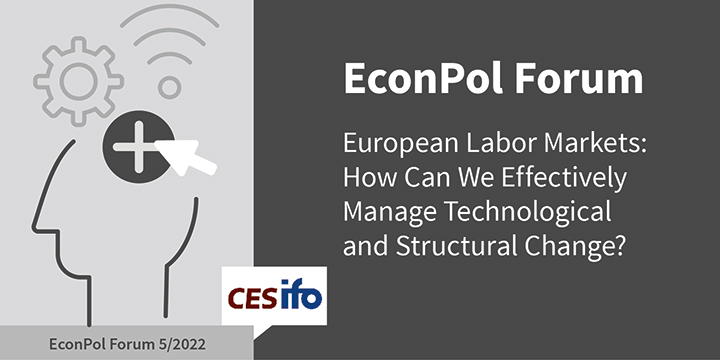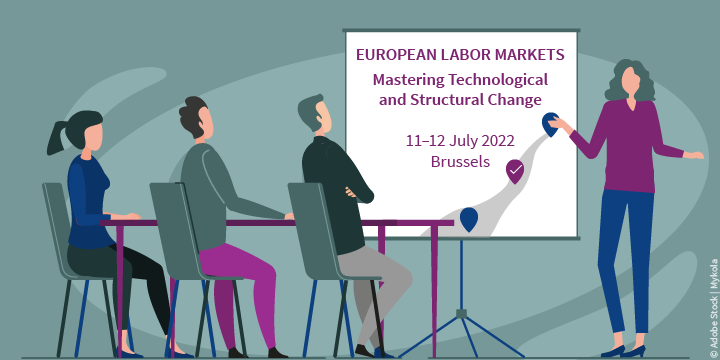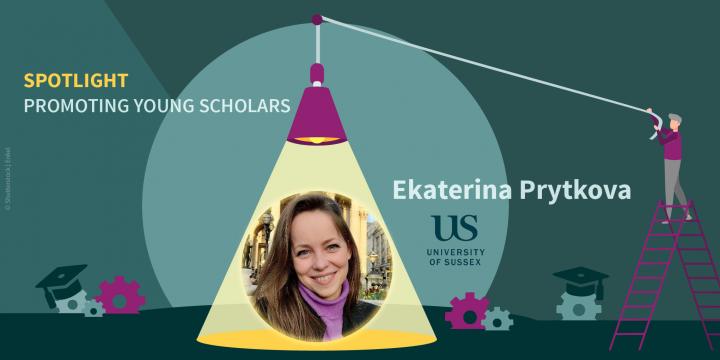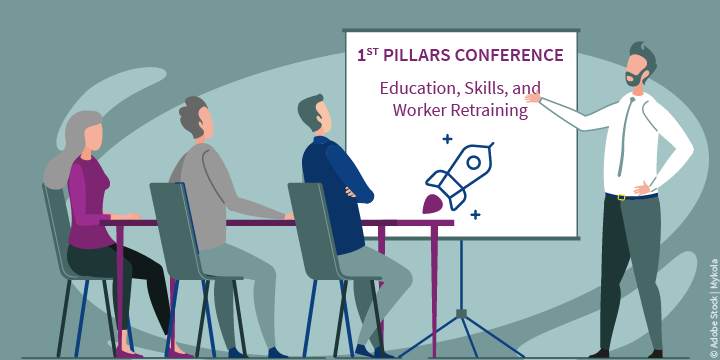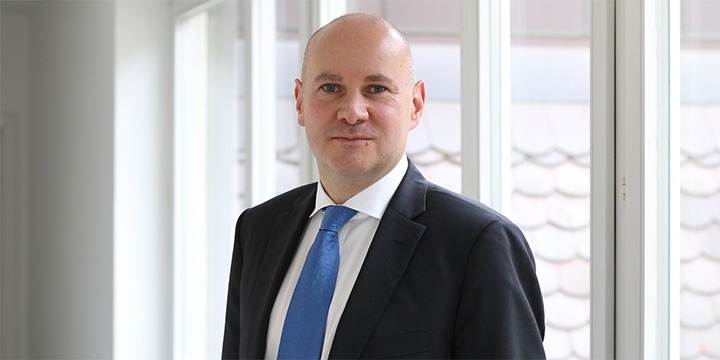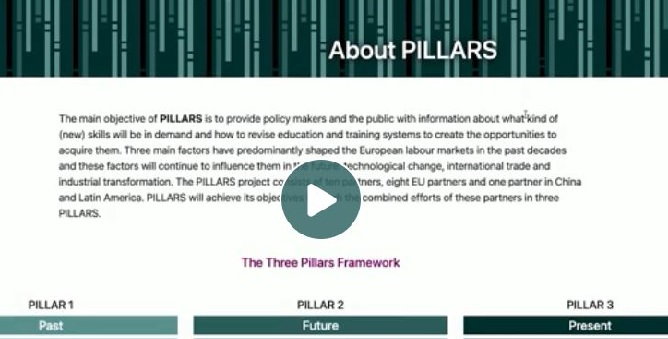News
What's special about Pillars and what are the key research results?
Our researchers were asked what Pillars means to them:
Their answers
Interview with Tommaso Ciarli (Pillars and UNU-MERIT):
Exposure of Industries and Occupations to Emerging Automation Technologies. Implications for the Future of Work
Interview with Maria Savona (Pillars and University of Sussex):
Emerging Digital Automation Technologies and the Future of Work. A Reappraisal
Final Conference: SkillShift – Future-Proofing the Workforce
The final conference in Brussels "SkillShift – Future-Proofing the Workforce" brought the Pillars project to a close. In case you missed it, here is a summary of key insights.
Policy Brief: Digital Automation Technologies and the Future of Work(ers): A Policy Roadmap
With the accelerating pace of recent years, there is an urgent need for policymakers to address the current and future impact of emerging digital automation technologies on jobs, skills demand, and wage inequality. Critical decisions will need to be made to ensure that investment, education, and skills training keep up with a range of technological and socioeconomic shifts.
Key findings
Workshop 13 December in Brussels: Policy Tools and Guidelines for Inclusive Employment Strategies
The final policy workshop is aimed at policy makers and key stakeholders promoting inclusive labour markets in Europe. The workshop is divided into two parts.
The first part of the workshop aims to present and discuss the policy tools developed during the PILLARS project. The second part of the workshop will be dedicated to sharing lessons learnt from effective recent/ongoing initiatives on inclusive labour markets and the future of work.
Workshop 5 December in London: Digital Automation Technologies and the Future of Work(ers): A Policy Roadmap
From emerging technologies to functional specialisation in skills and Global Value Chains (GVCs), there are a range of rapid technological and socioeconomic shifts with which policymakers are continuing to get to grips.
Final Conference: SkillShift - Future-Proofing the Workforce
In its agreement with film and television companies, the Writers Guild of America included not only pay increases, but also protections around artificial intelligence. Screenwriters are not the only ones fretting about their jobs as AI takes the world by storm: the stormy sounds are keeping many other types of workers, and policymakers foremost, awake at night. And AI is just one of the disruptive technologies being deployed.
Geography of Industries and Professions in Europe: Diversification Opportunities and Challenges
The increasing penetration of digital automation technologies such as artificial intelligence and robots is likely to have a massive impact on regional labour markets in the years to come. This workshop aims to bring together scholars and practitioners across different fields to further our understanding of how regions can better address the challenges and seize the opportunities associated with the digital automation technologies.
Pillars Workshop in Paris: Digitization, AI and Labor Outcomes
Beyond academic papers, the workshop will include high-level economists from the OECD, as well as a presentation of a Delphi survey of experts on recent trends in digitization, AI and outcomes for labor.
Green Skills in German Manufacturing
For all its perennial focus on traditional industries, Germany has done a remarkable job in greening its manufacturing. Green skills are quickly gaining prominence with Automotive manufacturing leading the way.
Pillars Survey on Emerging Automation Technologies, Industries, Tasks and Skills
We are delighted to invite you to join the largest international consultation on the future of automation, work and skills.
In this survey we collect views from thousands of technology specialists, managers, scientists and experts from civil society and policy across industries and regions. Participants have a unique opportunity to share and discuss their views on automation technologies that they expect to become widely adopted by 2030, which work activities they will perform and which skills they will demand.
Workshop on good policy practices across the EU regions
The workshop aims to discuss policy practices that make labour markets more inclusive, while capitalising on the opportunities created by automation technologies. The following policy areas will be in the focus of the workshop – education and training, labour market and employment, innovation and entrepreneurship, migration and labour mobility.
China-Europe: Make Up or Break Up?
China and Europe pose a conundrum to each other. Europe squirms uncomfortably between the USA and China in their superpower competition, trying to stay on good terms with both at the same time as minimising any risk of economic or geopolitical fallout. Pillars co-invited to a Munich Economic Debate organised jointly with the ifo Institute and the Süddeutsche Zeitung, a major German daily, to discuss the relationship’s prospects.
Spotlight: Nina Czernich - The Pillar of Pillars
Nina recognized early on that broadband access had practically become a human right, one that was shaping nearly all aspects of our lives. So, when she went for a career in economics, she quickly focused her research in that direction. Fittingly, she got a grant from the Deutsche Telekom and her doctoral thesis, which she worked on as a doctoral student and junior researcher at the ifo Institute, dealt with the economics of digitalisation.
How Novel Ways of Leveraging Data Reveal Future Skills Needs
It was the ideal line-up for a workshop to explore the future of work: Pillars hand-in-hand with its partner the ifo Institute and the Chamber of Commerce and Industry for Munich and Upper Bavaria. The task: to review how data can be leveraged to ascertain not only the state of skills availability, but also which skills will be needed in the future.
New Publication: The Value of Early Career-Skills
Acquiring early-career skills and having to reinvent yourself professionally over your working life go hand in hand, especially during these fast-changing times. Acquiring those early skills, however, definitely gives you a leg-up.
Call for Papers: Labor Market Effects of Automation and Technology Adoption in the Global Economy
This workshop aims to bring together a group of researchers working on topics related to automation, technological change, and labor markets in a global economy. We will discuss theoretical and empirical contributions that help us understand the determinants of automation in an open economy and discuss the impact of automation and technology adoption on firms and their workers.
Adjusting to Automation
Policymakers are understandably concerned about the effect of automation technologies on employment and wage levels in their jurisdictions. The effects, however, tend to be quite heterogeneous – and not much is known regarding what drives this heterogeneity. This makes devising the right policies a bit tricky.
Workshop: The Future of Work – How Novel Data Reveals Future Skills Needs
It is a powerful line-up: Pillars is joining forces with the ifo Institute and the Chamber of Commerce and Industry for Munich and Upper Bavaria to review how data can be leveraged to ascertain not only the state of skills availability, but also which skills will be needed in the future.
The Hottest Labour Market Tool
It would be a match made in heaven: the OECD’s Survey of Adult Skills (known officially as the Programme for the International Assessment of Adult Competencies, PIAAC) and the European Commission’s ESCO project (a multilingual classification of European Skills, Competences, Qualifications, and Occupations). Together, they would create an invaluable map of the supply and demand for professional skills across countries.
Policy Brief: Reverse Brain Drain?
Ever since China opened up to international trade, it has shaken up European labor markets one way or another, usually to the detriment of the low-skilled segment. Now, as it gains in sophistication and technological prowess, it may start to affect the high-skilled segment as well—and to a greater degree than the low-end one, by tapping European high-skilled workers.
Spotlight: Promoting Young Scholars - Isabella Gourevich
She almost went over to the Dark Side. For years, she was sure that she wanted to study Business Administration. But luckily, before taking that fateful step, she attended a lecture to introduce Economics to prospective students. The discussion about monetary systems and global value chains mesmerized her. Three days before the deadline to commit to a career, she changed her mind. Now she is one of us.
Regional Workshop on the Baltic States
The workshop aims to discuss the impact of automation technologies on the labour markets in the Baltic states (Estonia, Latvia and Lithuania), and to highlight policies in the region that have been designed to stimulate innovation and inclusion on the labour markets. Specifically, the project team would like to focus on three policy areas during the workshop:
Call for Papers: CESifo Venice Summer Institute 2023
There are worse things in life than decamping to a leafy island right across the water from San Marco in Venice. And if you can check the “work” box for it, well, that much better. SPRU and Pillars will be holding a workshop at the famed lagoon town in June 2023, devoted to combining different disciplinary approaches to tackle the effects that technological change will have on the future of work, instead of letting each discipline toil away on its own silo.
Spotlight: Francesco Trentini - A Pillar of Society
Francesco Trentini didn’t home in onto economics right away. His interest in the study of society led him to enroll in 2008 for a bachelor in Economics and Social Sciences at Milan’s Bocconi University, where he initially went for sociology and demography. His first thesis was on norms in cohabitation patterns in Europe.
Christina Langer presented her research at Stanford Digital Economy Lab
Christina Langer has been invited to share her research about the German apprenticeship “The Value of Skills: New Evidence from Apprenticeship Plans” at the Seminar Series of the Stanford Digital Economy Lab.
Check out her talk here:
Policy Debate of the Hour
Pillars researchers were granted the honour to contribute to the first 'Policy Debate of the Hour" in the new issue of the EconPol Forum (formerly CESifo Forum) on European Labor Markets.
Brussels Pillars-EconPol Conference Report
New Kid on the Block
The Pillars Scientific Advisory Council has gained in Bledi Taska a new member whose credentials and expertise are a perfect fit to help guide Pillars’ course towards inclusive labor markets.
Spotlight: Promoting Young Scholars - Ekaterina Prytkova
When economists don’t talk to technology specialists, or vice-versa, the results can range from commercially disappointing to downright disastrous. Think of overengineered cars or planes that flopped in the marketplace, or of recent tragic failures in aircraft safety when bean counters prevailed over engineers.
Spotlight: Promoting Young Scholars - Giulio Vannelli
Since he decided to go into Economics, Giulio Vannelli always had globalisation in his mind, in particular its core element, global value chains. That’s what he devoted his PhD thesis to, at the University of Trento last year, examining “Economic development in a globalised world: the role of Global Value Chains”. The Italian Ministry of Education, University and Research, honoured him with a PhD scholarship to this end.
1st Pillars Conference "Education, Skills and Worker Retraining"
Until just a few decades back you could count on the education you got in college seeing you all the way to retirement. Now, you have to reinvent yourself professionally several times during your working life just to stay current. Lifelong learning is the name of the game, and training and re-skilling the tools of choice.
Delphi Survey on Future Trends in Automation Technologies
PILLARS will run a global Delphi survey to gather different views on the future trends in emerging automation technologies, the industries that will adopt them and the tasks they will perform. To that purpose, we want to hear from technology experts in business, workers’ associations, inventors, researchers, and civil society organizations.
Spotlight: Promoting Young Scholars - Ana Oliveira
Ana Oliveira joined the Pillars Team at UNU-MERIT in February 2022. Get to know her.
Conference on Education, Skills, and Worker Retraining
We are pleased to announce the 1st PILLARS Conference on Education, Skills, and Worker Retraining on Thursday 17 and Friday 18 February 2022.
Please note that due to the current Covid situation the conference will run in an online format and the dates have been changed to Thursday 17 and Friday 18 February 2022.
Spotlight: Promoting Young Scholars - Christina Langer
Fast-Five with PILLARS Coordinator Oliver Falck
PILLARS coordinator, Oliver Falck, explains what prompted the creation of yet another labour market think-tank.
Given the many think-tanks and research organisations devoted to labour, why Pillars? What is the rationale behind its creation?
Video Introduction of PILLARS
The main objective of the Horizon2020 project PILLARS is to provide policy makers and the public with information about what kind of (new) skills will be in demand and how to revise education and training systems to create the opportunities to acquire them. See Prof Oliver Falck and Prof Maria Savona explain how we are doing that in this introduction video.
Join the Expert Group on Future Technologies, Skills and Inclusive Labour Markets of the PILLARS project!
What is the Expert Group on Future Technologies, Skills and Inclusive Labour Markets? It is YOUR opportunity to engage with key policy makers in the government, academia, industry and civil society sectors, as well as, with the PILLARS project team to support the development of inclusive and evidence-based labour market policies.
Where PILLARS comes in...
Technological progress is influencing the way we live and work. Labour markets will adapt and demand new skills. New jobs will evolve, while others are likely to disappear. Three main factors have dominated European labour markets in recent decades and are likely to continue to influence them in the future: technological change, international trade and industrial transformation. However, it is not yet clear how exactly such advances will transform our labour markets. This is where PILLARS comes in. The first phase of the project is centred around taking stock.
